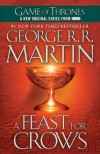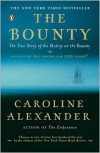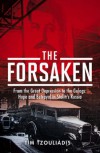Currently reading
A Feast for Crows
Japan at War: An Oral History
Armageddon: A Novel of Berlin
Falling Free (Vorkosigan Saga, #4)
Century Rain
The Bounty: The True Story of the Mutiny on the Bounty
Rite of Passage
Over the Edge of the World: Magellan's Terrifying Circumnavigation of the Globe
The 900 Days: The Siege of Leningrad
The Forsaken: From The Great Depression To The Gulags: Hope And Betrayal In Stalin's Russia
 [b:The Sparrow|334176|The Sparrow (The Sparrow, #1)|Mary Doria Russell|https://d202m5krfqbpi5.cloudfront.net/books/1230829367s/334176.jpg|3349153] is a first-contact novel by [a:Mary Doria Russell|4007|Mary Doria Russell|https://d202m5krfqbpi5.cloudfront.net/authors/1236919634p2/4007.jpg] where humans in 2019 A.D. go on an interstellar mission from Earth to make "first-contact" with an alien species on a planet which, later they would come to know as Rakhat. The plot follows two timelines – one, of the scientific mission itself and the other, in the year 2060 A.D., where the sole survivor of the mission, Emilio Sandoz, Jesuit priest and linguist, returns alone to Earth and recounts his horrific experience.
[b:The Sparrow|334176|The Sparrow (The Sparrow, #1)|Mary Doria Russell|https://d202m5krfqbpi5.cloudfront.net/books/1230829367s/334176.jpg|3349153] is a first-contact novel by [a:Mary Doria Russell|4007|Mary Doria Russell|https://d202m5krfqbpi5.cloudfront.net/authors/1236919634p2/4007.jpg] where humans in 2019 A.D. go on an interstellar mission from Earth to make "first-contact" with an alien species on a planet which, later they would come to know as Rakhat. The plot follows two timelines – one, of the scientific mission itself and the other, in the year 2060 A.D., where the sole survivor of the mission, Emilio Sandoz, Jesuit priest and linguist, returns alone to Earth and recounts his horrific experience. The book was good, but I didn’t feel that it was as good as some reviews here on Goodreads led me to believe.
Let me tell you why.
But first, the good:
Interesting Throughout (Although it has its drawbacks)
Even though the pace wanes gradually, especially in the sections where Emilio Sandoz recounts the events of his visit to the alien world, the book kept me going as it has a very accessible prose. It is written beautifully and I think that’s the strongest point of “The Sparrow”.
Well Fleshed-out Characters
All the characters, except Mark Robichaux, are really well drawn. I cared about what happened to them. One little problem I had with some of the characters was that that they seemed too sweet sometimes. Especially Anne.
Linguistics
The main reason why I read this book in the first place was that this story dabbles in linguistics and anthropological studies. Emilio Sandoz spends some time studying the alien culture and learning their language. For me, those were the best parts of the book.
Now, the bad, which sadly overshadows all the good.
**Minor Spoilers Below**
“Science” in the Science Fiction is unsatisfactory
The book is billed as science fiction, but after reading this as a science fiction enthusiast, I have to admit that the SF aspect of the book didn’t impress me much.
Here, the aliens feel more like humans than the aliens that they are supposed to be. There were only some perfunctory remarks about their physical dissimilarities from humans but apart from that, they felt more like humans to me than an entirely different species on an alien planet. But that might be because Mary Doria Russell didn’t really wanted her readers to feel that the book was set on an entirely different planet. She wanted us to feel that the book was set on earth itself. This is what she said at the end of her book:
Q: Until “The Sparrow” you had only written serious scientific articles and technical manuals. How did you end up writing a speculative novel?
A: The idea came to me in the summer of 1992 as we were celebrating the 500th anniversary of Columbus’s arrival in the New World. There was a great deal of historical revisionism going on as we examined the mistakes made by Europeans when they first encountered foreign cultures in the Americas and elsewhere. It seemed unfair to me for people living at the end of the twentieth century to hold those explorers and missionaries to standards of sophistication and tolerance that we hardly manage even today. I wanted to show how very difficult first contact would be, even with the benefit of hindsight. That’s when I decided to write a story that put modern, sophisticated, resourceful, well-educated, and well-meaning people in the same position as those early explorers and missionaries—a position of radical ignorance. Unfortunately, there’s no place on Earth today where "first contact" is possible—you can find MTV, CNN, and McDonald’s everywhere you go. The only way to create a "first contact" story like this was to go off-planet.
But the fact remains that as far as world-building was concerned, this book failed. It was as if the characters were acting in front of a green-screen background on which the CGI was to be added later but Russell forgot to add the CGI scenes onto the screens after the final editing. So although the characters were likable, there was nothing else to talk about.
One other major problem I had with the SF aspect of this book was that that the characters decided to grow plants brought from Earth on Rakhat in totally unconfined conditions. Surely, as scientists they should have been aware of the ecological disasters that could occur if someone tries to introduce a new (here, a totally alien) species of flora in a different environment. Australia with its problem of Cane toad and European rabbits is the prime example of that. There are even some invasive plant species that are wrecking havoc in Australia and other places of the world. Robichaux did gave an excuse that the plants would die within a year if they were not taken care of, but that’s just irresponsible behavior on his part. That observation was based on studies performed on Earth. How could he really tell what would happen to the plants in an altogether alien environment?
But what really annoyed me the most were the decisions that almost all of the characters made while they were on Rakhat.
Poor Decisions Made By The Characters
Walking Out Without Spacesuit
As soon as they landed on Rakhat, the characters walked out without taking any basic precautions. It would have been more believable if they would have walked out first in some sort of protective suits and then gradually would have shed them after checking the air from land, as they did from space.
Lander Fuel Problem
Okay, so we spend most of the book learning about Sofia Mendes’s exceptional intelligence. But then she throws it all away when her Ultra Light crashes and she and Mark use the Lander to reach the colony without checking the fuel. Due to that, they were stranded for the rest of their lives on Rakhat (assuming if nobody from Earth came to their rescue) as there was not enough fuel left in the Lander to reach their ship in outer space. I am sure those rigorous training sessions that they went through before departing on their voyage covered the topics such as “How to check your fuel gauge” or "Know your Pre-flight checklist - 101" or something like “Use Your Goddamn Hyper-intelligence Before You Act".
They Lived With The Species Most Of The Time Who Were Not The Ones They Came To Meet
Now, singing drew the humans to Rakhat. But they stayed there most of the time with another species which had nothing to do with the singing that was heard on Earth by Arecibo. This made sure that as a reader, even after reading the whole book, we won’t know much about the alien culture that really triggered the mission in the first place.
Look, I am not discouraging anyone from reading this book. But as a science fiction fan, I felt disappointed. But if I assume that this was an historical fiction novel, it works on several levels. At least, it made me curious to know what happens to Emilio Sandoz in the next book. So I would definitely read the second book, if only to finish what I started, but I also have a lingering hope that maybe, just maybe, the poor decisions made by the first book's characters would produce some unforeseen repercussions for the characters of the second one when they reach Rakhat.
If that happens, I would consider it a satisfactory conclusion to a sweetly written, hauntingly memorable; but otherwise a scientifically flawed and sometimes, an annoying story.












